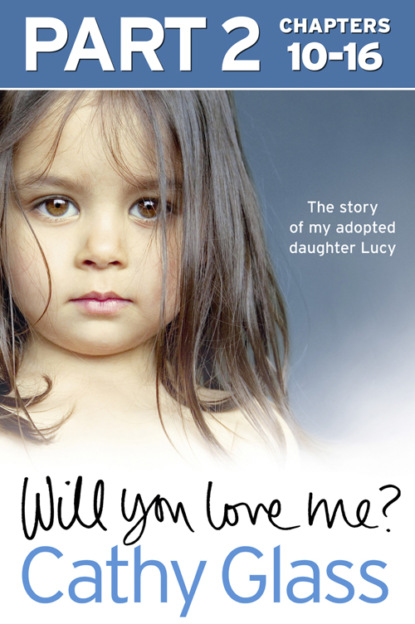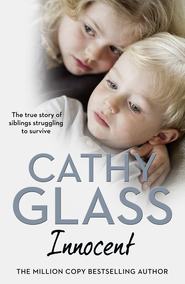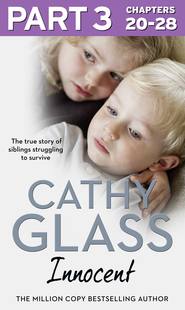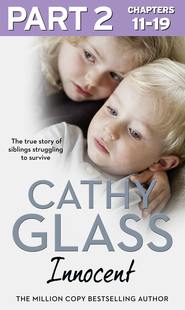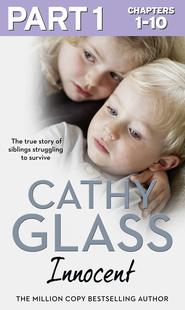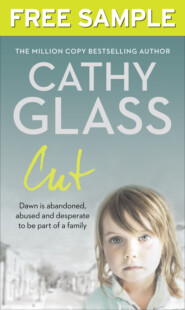По всем вопросам обращайтесь на: info@litportal.ru
(©) 2003-2024.
✖
Will You Love Me?: The story of my adopted daughter Lucy: Part 2 of 3
Настройки чтения
Размер шрифта
Высота строк
Поля
Lucy’s face was emotionless, and I instinctively felt she was a child used to hiding her emotions, probably as a coping mechanism to stop her from being hurt again.
‘Goodbye then, Lucy,’ Terry called from across the room. ‘Take care.’
Lucy gave another small nod and continued stroking Toscha.
I showed Pat and Terry to the front door. ‘Don’t worry, Lucy will be fine,’ I reassured them. ‘I’m sure she won’t stay this quiet for long.’
They both looked at me a little oddly. ‘She will,’ Pat said. ‘She’s hardly said a word to us in the whole three months she’s been with us. To be honest, we found her silence quite unnerving. The most she ever said was the other day when we told her she would be moving. Then she shouted and screamed. Perhaps she’s schizophrenic?’
‘More like traumatized,’ I said, a little tersely, concerned that a serious medical condition could be assigned so loosely.
I reassured Pat and Terry again that Lucy would be fine and we said goodbye. Closing the front door, I returned down the hall, still thinking of Pat’s comment. It wasn’t the first time I’d heard an adult – carer, parent, teacher or even a social worker – resort to labelling a child for behaviour they didn’t understand. Schizophrenia, ADHD, dyslexia, autism, etc. – these words should only be used after a medical diagnosis, because labels can stick. I hoped they hadn’t said anything similar within earshot of Lucy.
In the living room, Adrian, Paula and Lucy were still grouped around Toscha, stroking her.
‘I’ll go and play in my room then, Mum, if that’s OK?’ Adrian said, standing, and eager to be on his Nintendo.
‘Of course, love, and thanks for your help finding Toscha.’
‘It’s OK!’ he called, disappearing out of the living room.
I went over to Lucy and Paula, who now slipped into the seat Adrian had vacated. Both girls were very quiet, still shy, so squatting on the floor in front of them I began making conversation. I was sure once they got talking they’d be fine.
‘Before you arrived,’ I said to Lucy, ‘we had quite a scare, didn’t we, Paula?’ Paula nodded. ‘We couldn’t find Toscha anywhere. We looked all over the house and even in the garden. You’ll never guess where we found her?’ I paused, allowing time for Lucy to offer a suggestion or perhaps say, ‘No? Where was she?’ But she was too shy.
‘She was on your bed! Fast asleep.’ Paula said, supplying the answer. ‘She’s not really supposed to be on the beds.’
Lucy slowly raised her head and looked at me, her large dark eyes growing rounder with astonishment. Then, very quietly, she said: ‘Was she really on my bed?’
‘She was, love. I must have shut her in when I checked your room first thing this morning.’
The smallest, almost imperceptible smile now crossed Lucy’s face. Then, in the same quiet voice, she said, ‘I think if Toscha was on my bed it means she likes me, don’t you?’
I felt my eyes brim. ‘It does love. It most certainly does. We all like you.’
I hadn’t planned any activities for the weekend. I’d kept it clear so that Lucy would have a chance to settle in and familiarize herself with us, her new home and routine, and hopefully start to relax a little. She came across as a very gentle child who could easily be taken advantage of; someone who needed protecting. I thought again how frightening it must be to come into yet another stranger’s house, where you were expected to fit in. I also felt she was tense, on guard, almost in a permanent state of alert, as if at any moment she was ready to run. I knew from my previous fostering experience and training that this heightened anxiety wasn’t unusual for a child who’d been severely neglected or abused; even a pin dropping can make them jump. I also knew it would take many weeks, if not months, and a lot of work before Lucy felt safe enough with us to lower her guard and completely relax.
Presently Paula tired of stroking Toscha and said to Lucy, ‘Would you like to play a game now?’
Lucy gave a small nod.
‘Or would you like to see your room first and then play a game?’ Paula said.
‘I don’t mind,’ Lucy said quietly, with a little self-conscious smile.
‘It’s your decision,’ I encouraged.
‘Shall we see my room first?’ Lucy asked Paula.
I was in no doubt that, had Paula said no, Lucy would have gone along with whatever Paula wanted to do.
‘Yes. Let’s see your room first,’ Paula said. ‘Then we can play a game.’
Both girls stood and we went out of the living room and upstairs, where I opened the door to Lucy’s bedroom and we all went in.
‘Do you like it?’ Paula asked, crossing to the window. ‘It’s got a nice view.’
I smiled. The view was something I usually pointed out when I showed a new child and their social worker around the house, as the room overlooked the garden.
Lucy gave a small nod, but didn’t go over to look out of the window.
Вы ознакомились с фрагментом книги.
Приобретайте полный текст книги у нашего партнера:
Приобретайте полный текст книги у нашего партнера:
Другие электронные книги автора Cathy Glass
Innocent




 0
0





